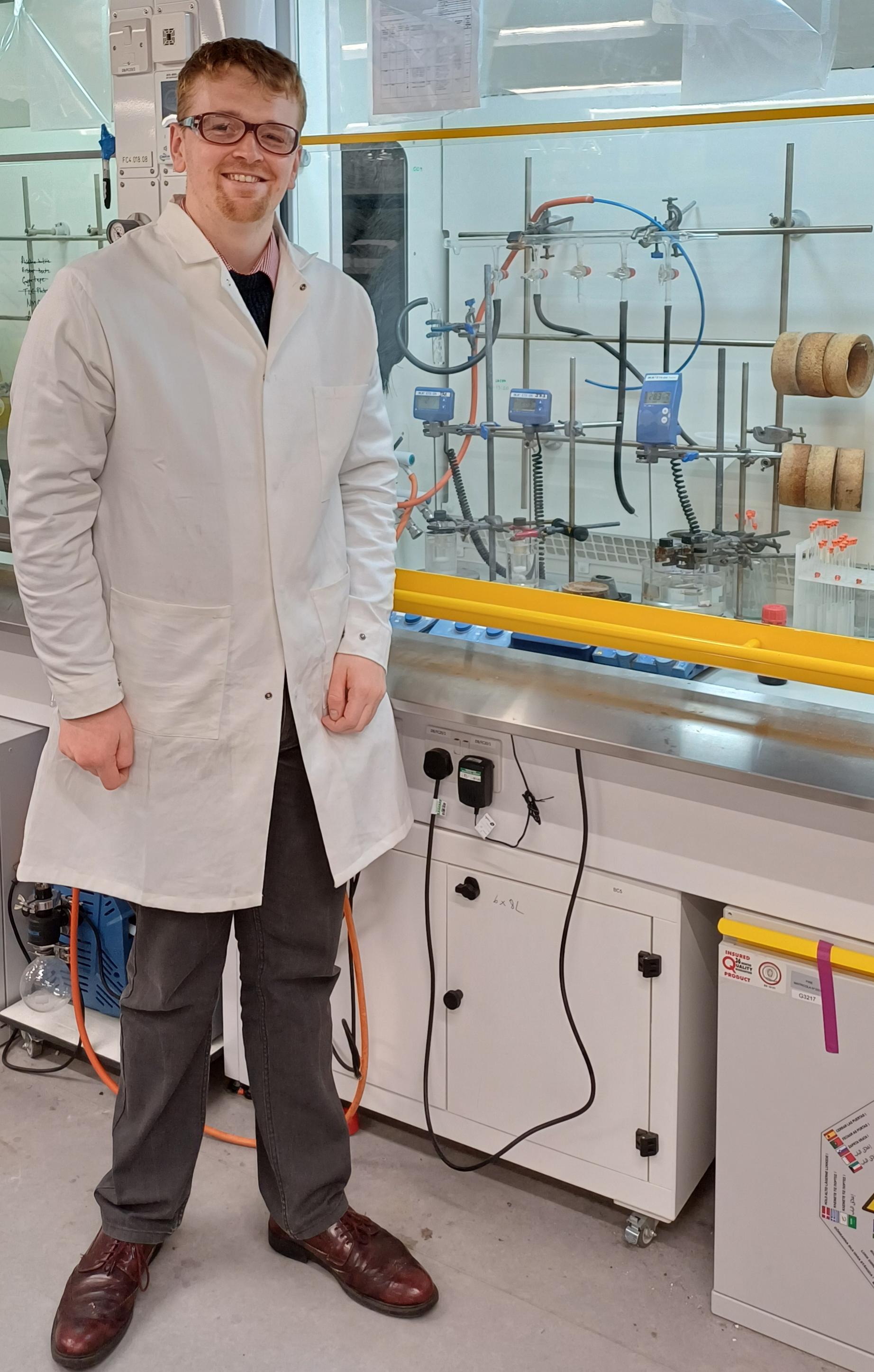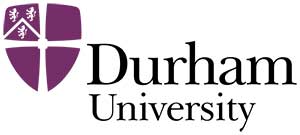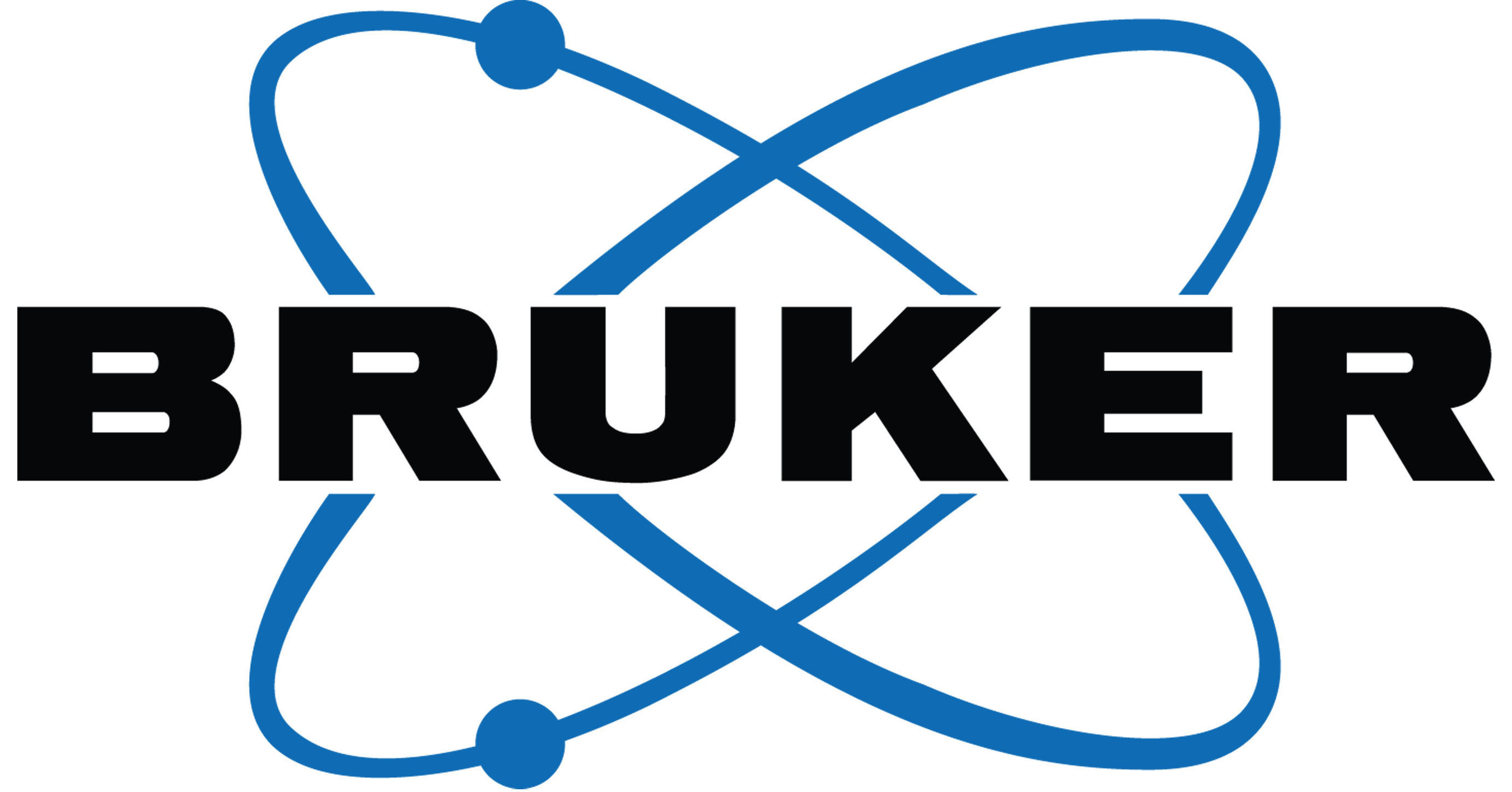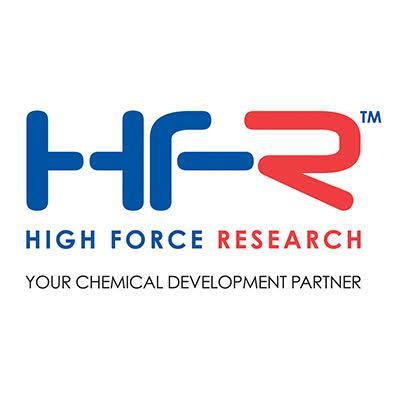Alumni
 Matthew Smith
Matthew Smith
- Mat Smith (Cohort 1) completed his PhD at Durham University under the supervision of Professor AnnMarie O'Donoghue. He is now a Postdoctoral Researcher at the University of Manchester.
What kind of work are you doing now?
I recently started working at the University of Manchester as a postdoctoral research associate in organic chemistry. I still work within a laboratory, as I did during my PhD, but I now have greater independence in developing my research plans. I’m now also responsible for managing a research laboratory, and supervising PhD students where necessary.
What does this work involve?
In short, my new role involves developing a new piece of equipment to analyse complex heterogeneous mixtures by NMR spectroscopy. I work in a team of three postdoctoral researchers, alongside experts in fluid mechanics and NMR spectroscopy methodology, to develop technology that will enable mechanistic information to be extracted from reactions within these complex mixtures.
The leading technique in chemical reaction monitoring is NMR spectroscopy, as it provides kinetic and structural information of all reaction components simultaneously. Unfortunately, current limitations in NMR instruments mean that spectral information of heterogeneous reactions remains inaccessible. Heterogeneous reactions, such as those involving insoluble solid particles within liquids or immiscible liquid-liquid systems, are critical in various industrial chemical processes ranging from drug development to polymer synthesis and catalysis. By bringing NMR spectroscopy to the analysis of heterogeneous reactions we would profoundly enhance understanding of the kinetics and complex mechanisms inherent in these systems. These insights enable us to revolutionise various industrial processes, leading to wide-reaching benefits.
How has your PhD and the CDT helped you prepare for this position?
The research I’m now conducting directly builds on skills and knowledge gained during my PhD studies. My PhD involved undertaking kinetic analysis of various chemical processes using NMR spectroscopy, this experience in kinetic analysis is useful for the complex systems I’m now investigating. A variety of other skills gained by undertaking an independent research project, such as laboratory skills and organisation, are directly transferrable from my PhD studies into this position.
The CDT additionally provided a range of training and experience that is very useful in my new role. My experience in multidisciplinary research as part of MoSMed provided me with experience in discussing my research and ideas in a format accessible to those not within my field. The opportunities to present my work at the annual CDT conferences have given me greater confidence in presenting my work, which is useful for group meetings and for conferences. Furthermore, the opportunity to undertake the mini-MBA through the CDT gave me experience in developing a business model. This experience will likely be of use in the future as I help develop the technology I’m now working on.
(Image: Dr Mat Smith in the lab.)






















